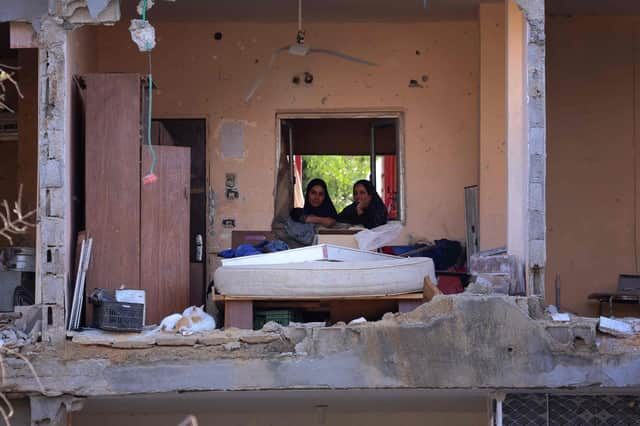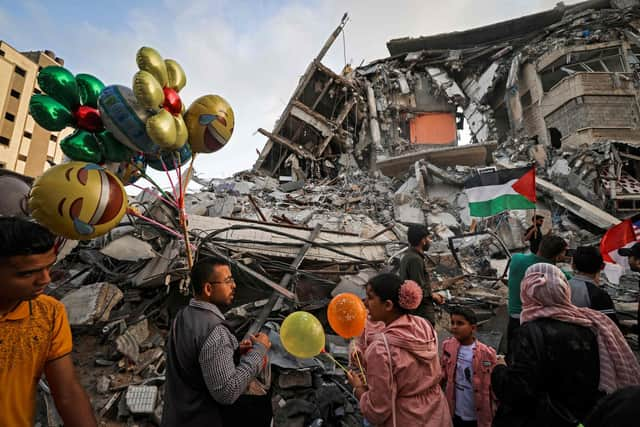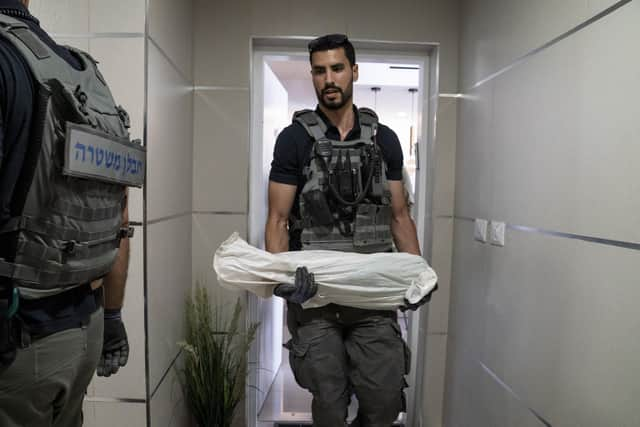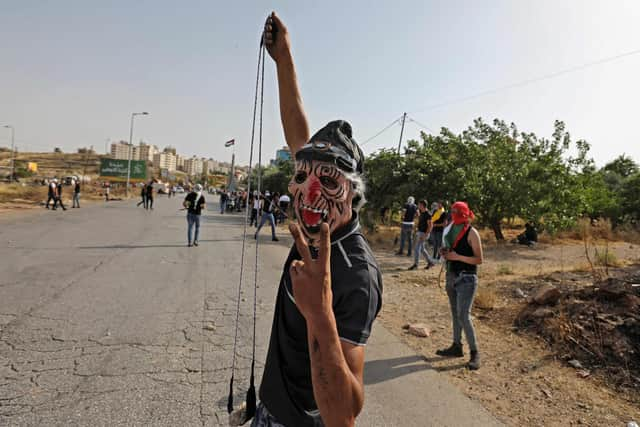Why Israel may regret its mainstream media's failure to cover Palestinian side of missile war – Ben Lynfield


When Israeli television Channel 12 showed a graphic of the highlights of the day's fighting, it featured the Hamas missile barrages against Israeli cities but left out the dead Palestinian children.
All told, at least 227 Palestinians were killed including 64 children and 38 women and another 1,620 people were wounded, according to the Gaza health ministry. In Israel, 12 people, among them a five-year-old boy and a 16-year-old girl, were killed with 357 Israelis wounded, according to Agence France Presse. Eighteen Gaza hospitals and clinics were damaged, the World Health Organisation reported, while Gaza's main Covid-19 testing lab was largely obliterated.
Advertisement
Hide AdAdvertisement
Hide AdThe numbers tell a story but it is one most Israelis don't know. Some don't want to know.
It is a lot to expect of people under rocket barrage seeking to calm terrified children to show empathy for the other side.
Three hundred rockets were fired at Israel in 12 hours on the last day of the fighting, according to state-run Reshet Bet radio.
However, the mainstream Israeli media – by and large – failed to cover the entirety of this war, racing from interviews with traumatised people at one rocket-strike site to another or to the flashpoints of Arab-Jewish violence inside Israel. The few images shown of Gaza were of smoke billowing from high rises struck by the air force, not of human beings.


The Haaretz newspaper did tell both sides of the story, with headlines such as "the army designates residential homes as a military target – entire families are erased". But its circulation is relatively small and readership is mostly left-wing.
Channel 12 television host Dana Weiss had her life threatened, apparently for being too even-handed. Other Israeli journalists were also threatened by extreme rightists.
The failure of the mainstream media manifested itself in largely stacking panels with ex-generals and former Shin Bet security service personnel, rather than academic specialists, as expert analysts. The former generals were buttressed by defence reporters whose sources are in the security establishment.
The ignoring of the other side's civilian casualties was in keeping with the public mood towards Hamas, which fired at Israel indiscriminately.


Advertisement
Hide AdAdvertisement
Hide Ad“Especially in the situation we're in vis à vis Hamas, the vast majority of the Jewish public couldn't give too much of a crap about how many civilians are being killed over there, assuming we believe that the Israel Defence Forces are not trying to kill civilians and Hamas is at fault for putting its equipment in civilian areas,” said Sam Lehman-Wilzig, a political scientist at Bar Ilan University near Tel Aviv. “There is very little guilt… the average newspaper reader or television viewer is not interested.”
Commercial interests also seem to have played a role, with outlets wary of losing advertisers, government contracts or even being boycotted in a country where public opinion has shifted decidedly to the right since the suicide bombings – many of which were carried out by Hamas – of the second intifada uprising from 2000 to 2005.
The media's stance also reflected the silence of left-wing Zionist political parties about the civilian toll in Gaza. "The centre-left was under the psychological effect of the rockets," noted Menachem Klein, who also teaches at Bar Ilan University.
To the best of my knowledge, the mainstream media did not report that, for the duration of the war, the army barred all of its foreign press colleagues from entering the Gaza Strip in an apparent but failed bid to obscure from the international community what it was doing.


Even after the guns went silent on Friday, the mainstream media was preoccupied with Israel having suffered a public relations defeat rather than introspection about the morality of the army's approach.
The Israeli media – the most free in the region and the ostensible guardian of the democratic aspects of the Israeli state – did a big disservice to the country in its coverage of the war and has helped set the stage for further conflict.
Without awareness of the massive civilian toll in Gaza, the average Jewish Israeli is left with an incomplete understanding of why Arab citizens were outraged, the occupied West Bank started to simmer, and international opinion, including increasingly broad segments of American public opinion, turned against Israel.
That knowledge gap augurs poorly for the futures of Israelis and Palestinians alike.
A message from the Editor:
Thank you for reading this article. We're more reliant on your support than ever as the shift in consumer habits brought about by coronavirus impacts our advertisers.
If you haven't already, please consider supporting our trusted, fact-checked journalism by taking out a digital subscription.
Comments
Want to join the conversation? Please or to comment on this article.
